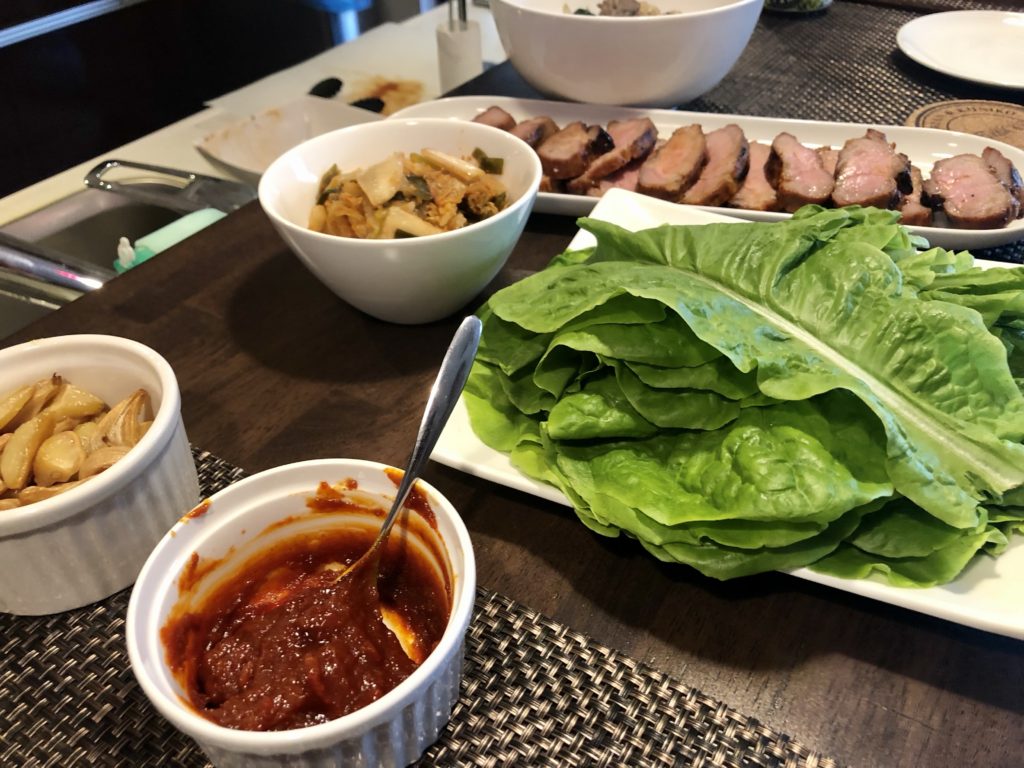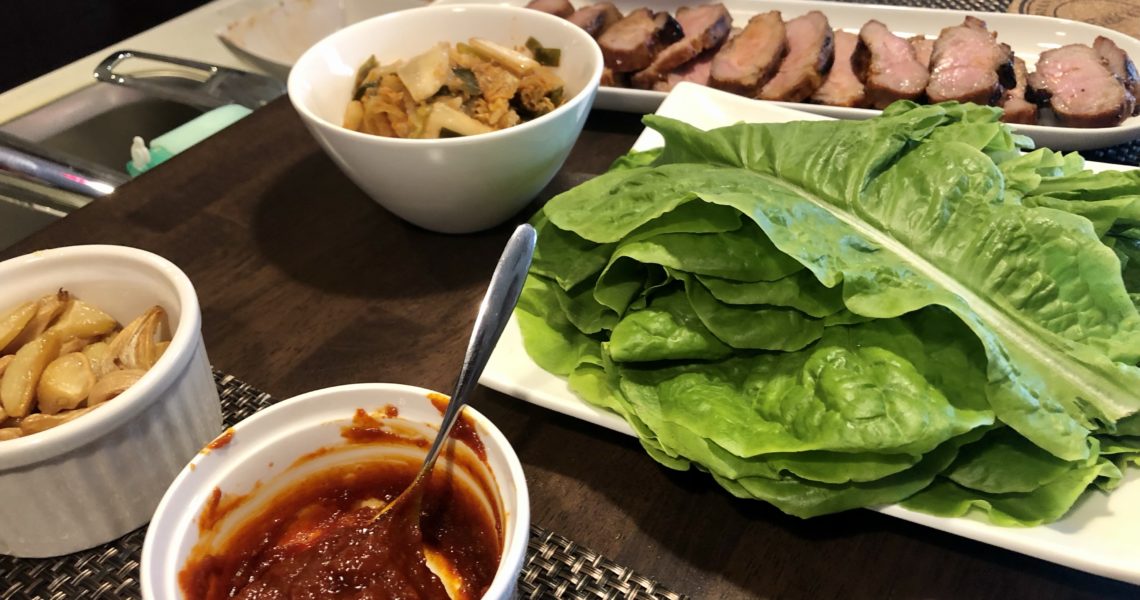Even though we are pretty much stuck at home every weekend we’ve been eating extremely well. All week we think about what we want to cook the next weekend, and the dishes we cook have been for the most part very good.
This weekend we started with paprika chicken and some kekfrankos wine from Hungary. We’ve got great memories of our meals in Budapest, and Kuniko did a great job cooking up a rich dish for us to celebrate the end of the week.

Saturday night we sort of suddenly came up with Korean food as an idea, so we had japchae and samgeopsal (using grilled pork). Kuniko roasted up a couple heads of garlic and we smeared the cloves onto a piece of grilled marinated pork, with a dab of gochujang and ssamjang and finally a dollop of homemade kimchi, then wrapped them up in a green leaf of sanche lettuce. It was so delicious – one of those mind-blowing meals.

Sunday night I cooked up a caramelized onion and cheese tart (I used chickpea flour and cumin for the tart base), and we had a side of (once again, grilled) pork and some orange lentils with harissa.
By the end of the weekend I was pretty stuffed, so we’ll be back on cabbage salad (and to some extent, leftovers) the rest of this week while we dream up menus for the upcoming three day weekend.

